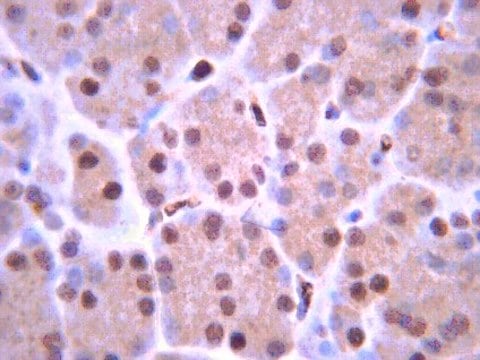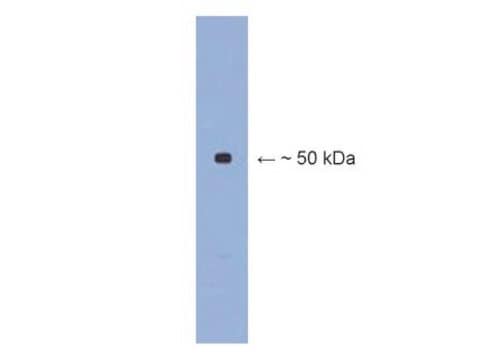AB15708C3
Anti-Beta III Tubulin, Cy3 Conjugate Antibody
from rabbit, CY3 conjugate
Synonyme(s) :
Anti-CDCBM, Anti-CDCBM1, Anti-CFEOM3, Anti-CFEOM3A, Anti-FEOM3, Anti-TUBB4, Anti-beta-4
About This Item
Produits recommandés
Source biologique
rabbit
Niveau de qualité
Conjugué
CY3 conjugate
Forme d'anticorps
affinity isolated antibody
Type de produit anticorps
primary antibodies
Clone
polyclonal
Espèces réactives
rat
Réactivité de l'espèce (prédite par homologie)
mouse (based on 100% sequence homology), human (based on 100% sequence homology)
Technique(s)
immunocytochemistry: suitable
Numéro d'accès NCBI
Numéro d'accès UniProt
Conditions d'expédition
wet ice
Modification post-traductionnelle de la cible
unmodified
Informations sur le gène
human ... TUBB3(10381)
mouse ... Tubb3(22152)
Description générale
Immunogène
Application
Neuroscience
Neuronal & Glial Markers
Neurofilament & Neuron Metabolism
Qualité
Immunocytochemistry Analysis: A 1:100 dilution of this antibody detected Beta III Tubulin in rat E18 cortex cells.
Description de la cible
Forme physique
Stockage et stabilité
Remarque sur l'analyse
Rat E18 cortex cells
Clause de non-responsabilité
Not finding the right product?
Try our Outil de sélection de produits.
Code de la classe de stockage
12 - Non Combustible Liquids
Classe de danger pour l'eau (WGK)
WGK 2
Point d'éclair (°F)
Not applicable
Point d'éclair (°C)
Not applicable
Certificats d'analyse (COA)
Recherchez un Certificats d'analyse (COA) en saisissant le numéro de lot du produit. Les numéros de lot figurent sur l'étiquette du produit après les mots "Lot" ou "Batch".
Déjà en possession de ce produit ?
Retrouvez la documentation relative aux produits que vous avez récemment achetés dans la Bibliothèque de documents.
Notre équipe de scientifiques dispose d'une expérience dans tous les secteurs de la recherche, notamment en sciences de la vie, science des matériaux, synthèse chimique, chromatographie, analyse et dans de nombreux autres domaines..
Contacter notre Service technique








